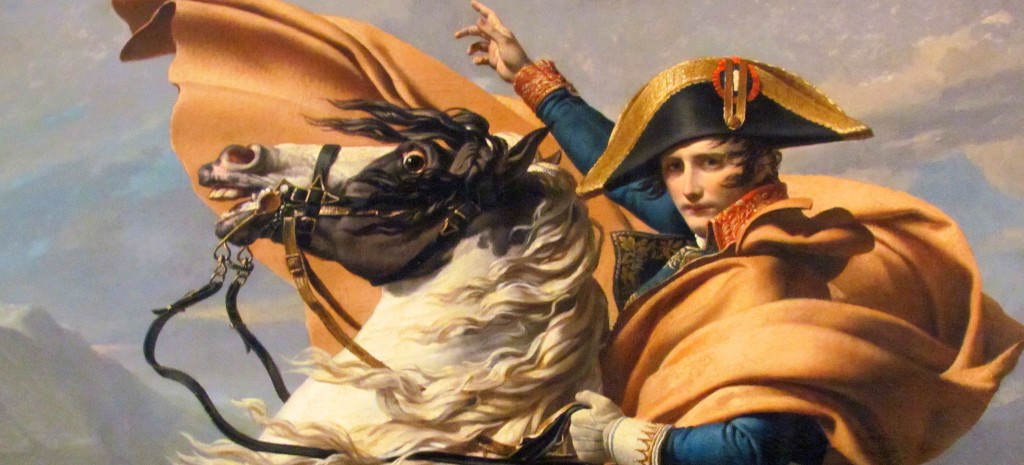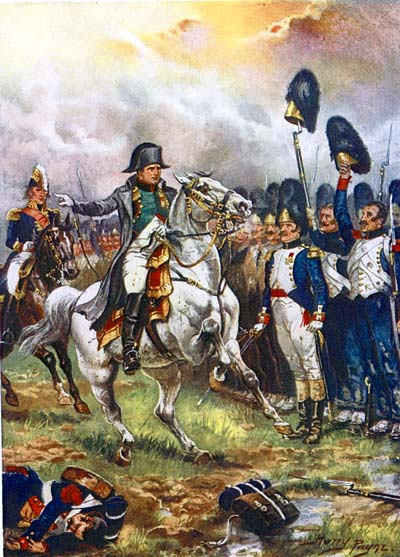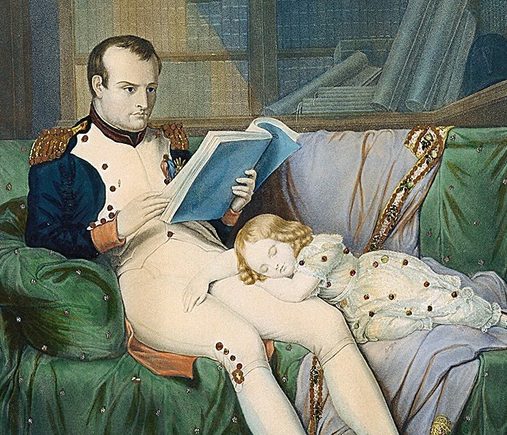
“The American Revolution gave us Washington, but the French got in Napoleon a man who was Washington, Jefferson and Hamilton rolled into one: military genius, enlightenment intellectual and visionary builder of the first modern state.”
—Andrew Roberts, Napoleon, A Life
That quote sums up what’s fascinating about Napoleon Bonaparte: the sheer breadth of his personality, accomplishments, and interests. Add to that, he was a romantic lover and a devoted father, stepfather, brother, son, and friend.
But how can any one person be all those things at once?

Indeed, it’s the breadth of Napoleon’s personality and actions that makes him controversial. One moment, he’s a hero, the next he’s a villain. He could be a stooge or a schemer, a brave man or a coward. That’s why he’s both revered and reviled—sometimes in the same sentence. (Example: He was the Western world’s most brilliant, successful military leader, yet he led a half a million men to death and defeat when he unnecessarily invaded Russia in 1812.) He’s truly Shakespearian in his genius and his failure.
With estimates ranging from 30,000 to 300,000 books written about him, Napoleon Bonaparte’s life may be the most documented and opined upon in history. There’s always more to learn about him, some new surprise or twist to his story.
The contradictions are astounding. Born into a turbulent time and place—Revolutionary France—he rose from a Corsican nobody to become the most powerful European of his time. He’s best known as a military genius. His true legacy is the creation of lasting governmental institutions, laws and constitutions, educational and religious reform, and public infrastructure.
Two hundred years after his death, he remains one of the most influential people in history. Here are some highlights of his life.
Contradictions that make Napoleon fascinating:
He is the epitome of France, yet he didn’t speak French until he was nine. The second son of a minor, impoverished Corsican noble, he attended military school on a scholarship from the French king. By age thirty, he had supplanted that monarch as France’s ruler.
Although he knowingly played the fool for an unfaithful wife, he never gave up on romance.

He’s portrayed as a short man, when at 5’7”, he was average height for a Frenchman of his time.
He codified the French Revolution’s principle of “Merit over Birthright,” a then-radical principle we now take for granted. Yet he tried to turn his rule into an hereditary dynasty. Worse, he set up his undeserving brothers as kings in his conquered territories.
Famous for ruthlessness, few rulers forgave betrayal so frequently.
He faced battle fearlessly but could be petulant over a slight head cold.
Remembered for his empire’s splendor, he always ate plain food and watered down his wine.
In the midst of France’s revolutionary chaos, he imposed financial and social stability. Out of that stability, he brought France devastation and loss.
He reinstated the Catholic Church that the French Revolution had banned and looted. Yet he plundered the Vatican’s treasure and held the pope hostage. Ultimately, he established the successful French church-government relationship that survives to this day.
Napoleon the man (and the people called him “l’homme”) is a mass of contradictions. How did he become the intricate personality he was? And how did someone who’s been called “the most competent man in history” fail so spectacularly before he’d turned fifty?
There’s no single answer, which is what makes Napoleon Bonaparte so fascinating. I hope my novel, Finding Napoleon, and this website provide some insight.
